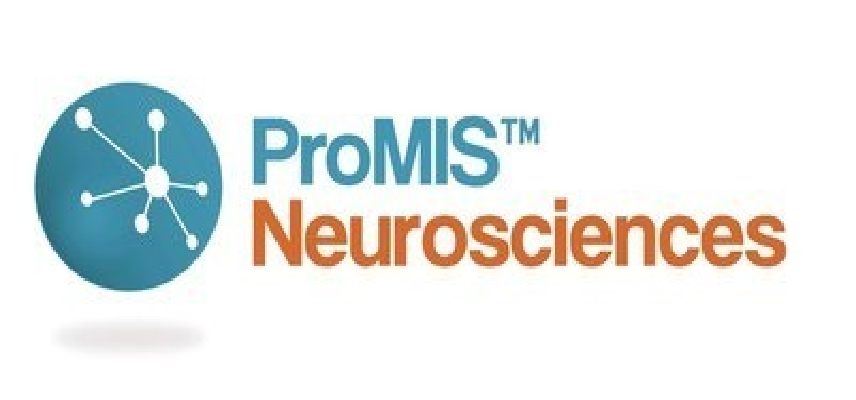ProMIS Neurosciences Starts Phase 1b Dosing in PRECISE-AD Trial
ProMIS Neurosciences Inc, a clinical-stage biotechnology company focused on the generation and development of antibody therapeutics targeting toxic misfolded proteins in neurodegenerative diseases such as Alzheimer’s disease (AD), amyotrophic lateral sclerosis (ALS) and multiple system atrophy (MSA), has announced important progress in the PRECISE-AD phase 1b clinical trial with the dosing of multiple patients with its lead drug candidate, PMN310, designed for the treatment of Alzheimer’s disease (AD). The dosing of several patients marks an important milestone in assessing the safety, tolerability, and pharmacokinetics of PMN310 and underscores ProMIS’s commitment to addressing the urgent need for targeted therapies in AD by selectively targeting toxic oligomers, which we believe to be a key driver of disease progression.
PMN310 is a humanized monoclonal antibody (mAb) designed and developed to selectively target only soluble amyloid-beta oligomers (AßOs), which are believed to be the most toxic and pathogenic form of Aß, while avoiding any binding to Aß monomers and amyloid plaques.
“The initiation of dosing in multiple patients in our phase 1b PRECISE-AD trial marks a significant milestone for ProMIS Neurosciences,” said Neil Warma, chief executive officer of ProMIS Neurosciences. “With a growing need for more effective and safer treatments for Alzheimer’s disease, we are excited to take this critical step toward demonstrating PMN310’s potential to make a real difference for patients and their families. We look forward to generating clinical data and furthering our commitment to transforming Alzheimer’s treatment.”
“The PRECISE-AD trial has been carefully designed to generate potentially robust clinical data, including biomarker insights and efficacy signals that will guide the next phase of development. We believe PMN310’s selective binding to toxic Aß oligomers and not to plaque or monomers differentiates it from other drugs currently on the market or in development and we believe we have the potential to deliver a more effective and well-tolerated treatment for patients suffering from Alzheimer’s disease,” added Neil Warma.
“As physicians dedicated to advancing Alzheimer’s research, we are excited to be part of the PRECISE-AD trial evaluating PMN310,” said Yaneicy Gonzalez-Rojas, MD and Ahmad Aswad, Investigators of the PRECISE-AD clinical trial. “Alzheimer’s disease remains one of the greatest unmet medical needs, and patients urgently need new treatment options that are both effective and well-tolerated. Current AD treatments offer only modest efficacy and are often accompanied by significant side effects, such as ARIA. PMN310’s novel and selective targeting of amyloid oligomers has shown disease modifying capacity for AD in preclinical models, which we believe is promising and offers hope to Alzheimer’s patients and their loved ones.”
PRECISE-AD phase 1b clinical trial is a randomized, double-blind, placebo-controlled study to evaluate the safety, tolerability and pharmacokinetics (PK) of multiple ascending doses (5, 10, 20 mg/kg) of intravenous PMN310 in patients with Stage 3 and Stage 4 AD. The study will also evaluate key biomarkers and clinical measures of efficacy to gather data on PMN310’s therapeutic potential. The PRECISE-AD study plans to enroll approximately 100 subjects across 22 active sites in the United States. Eligible patients will be dosed monthly at one of the three dose levels or placebo over 12 months with assessment of safety, tolerability, PK, and pharmacodynamic blood- and brain-based markers of treatment effect at baseline and every three months. Frequent MRI scans throughout the study will be conducted to monitor for emergence of ARIA.
PMN310 is a humanized monoclonal antibody (mAb) designed and developed based on its selectivity for soluble amyloid-beta oligomers (AßOs), which are believed to be the most toxic and pathogenic form of Aß, relative to Aß monomers and amyloid plaques. Soluble AßOs have been observed to be potent neurotoxins that bind to neurons, impair synaptic function and induce neurodegeneration. By selectively targeting toxic soluble AßOs, PMN310 aims to directly address the growing body of evidence indicating they may be the primary underlying cause of the neurodegenerative process in Alzheimer’s disease. PMN310 has successfully completed a Phase 1a clinical study (NCT06105528), a double-blind, placebo-controlled, single ascending dose study of the safety, tolerability and pharmacokinetics of PMN310 infusions in healthy volunteers.

Optimize Your trial insights with Clival Database.
Are you exhausted from the uncertainty of trial insights pricing? Clival Database ensures the clarity in the midst of the global scenario for clinical trials to you.Clival Database is one of the best databases that offers an outstanding number of clinical trial data in terms of 50,000+ molecules and from primary regulatory markets as well as new entrants like Indian and Chinese markets.
With Clival, you get accurate positioning of historical sales data, patent database, company profiling, safety & efficacy, and prediction of launch of new innovative molecules helping you to align your research and driving down the cost.
To add value, we further break down our analytics for you so that improving your operational effectiveness; optimizing your clinical trials; and offering you accurate and high-quality data at lowest possible prices becomes possible.
Elevate your trial success rate with the cutting-edge insights from Clival database.
Check it out today and make more informed sourcing decisions! Learn More!







